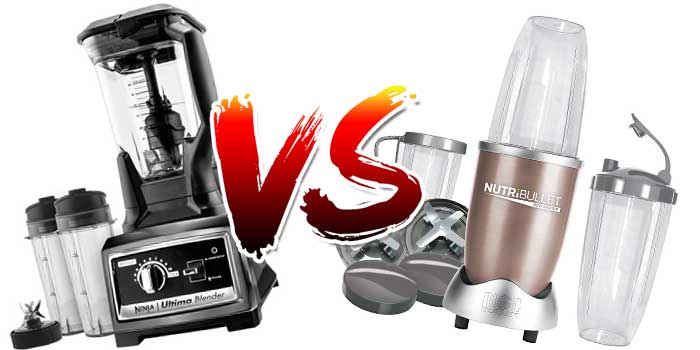Is Rice Good for Bulking? Unveiling the Truth
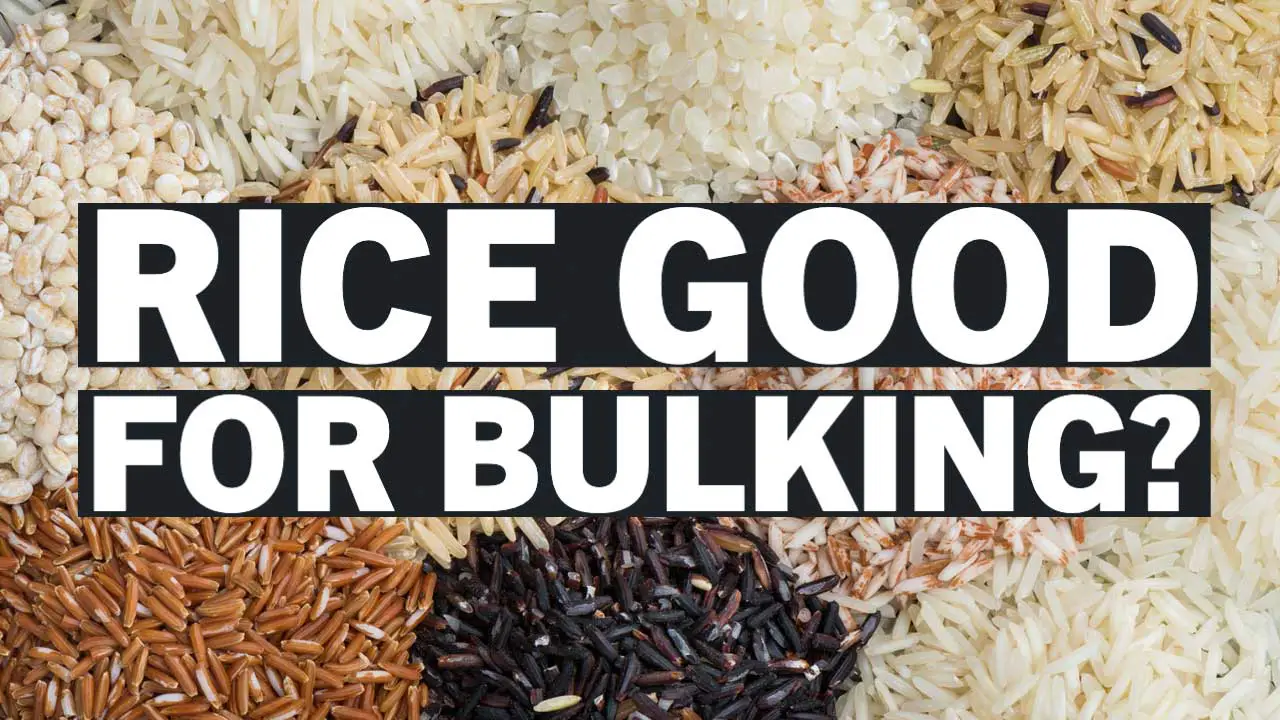
ListedFit is reader-supported. When you buy through links on our site, we may earn a small commission.
When it comes to bulking up and adding muscle mass, choosing the right foods is essential. Rice, a staple food for many cultures, has become a popular choice for individuals looking to bulk up due to its nutritional benefits and versatility in recipes.
This article will explore the potential of rice as a bulking food and provide valuable insight into its use in a successful bulking diet.
Quick Summary
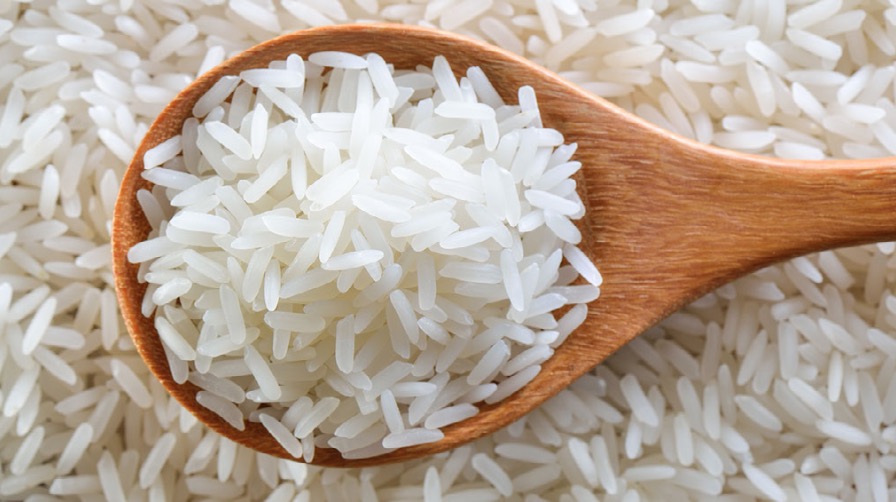
Understanding the relationship between rice and bulking requires a basic understanding of nutrition and muscle growth.
As a primary source of carbohydrates, rice can provide the necessary energy to fuel workouts and promote muscle recovery.
Additionally, rice pairs well with protein-rich foods, such as chicken, fish, and lean meats, which are essential for muscle growth and repair.
Key Takeaways
- Rice is a versatile and nutritious carbohydrate source for bulking diets
- Pairing rice with protein-rich foods supports muscle growth and recovery
- Types of rice and bulking techniques can be customized for individual preferences and goals
Table of Contents
Rice and Bulking: The Basics
When it comes to bulking and building muscle mass, rice offers an excellent carbohydrate source for fueling your workouts.
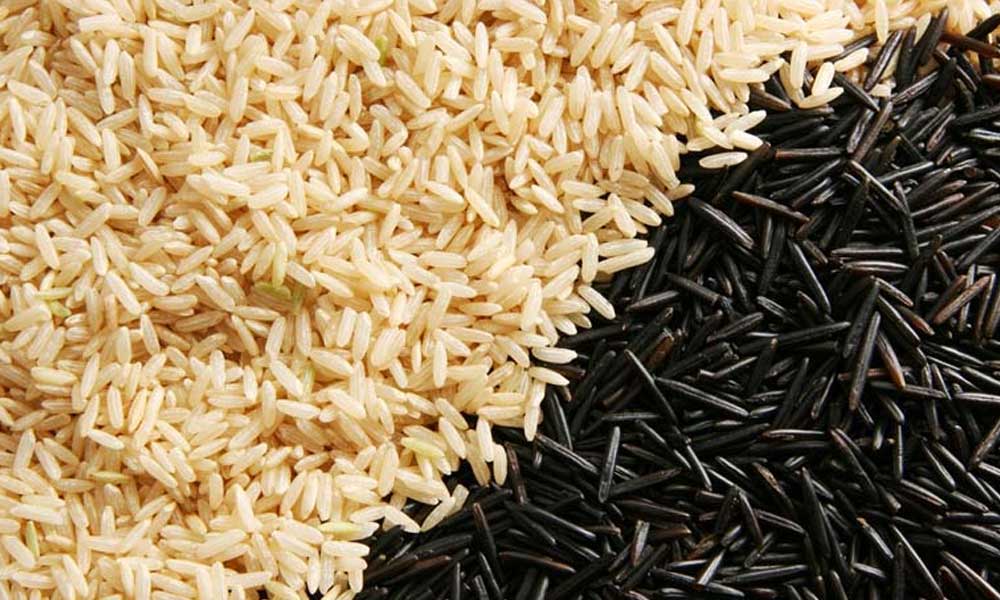
Available in various types, the most common being white and brown rice, it can be incorporated into your diet effortlessly.
- White rice is a fast-absorbing carbohydrate, which makes it an ideal choice for a post-workout meal. Its low fibre content allows your body to digest it quickly, providing the necessary energy and restoring glycogen levels.
Since it’s easy on the stomach and versatile, you can pair it with other protein-rich foods like chicken or fish.
- Brown rice, on the other hand, is high in fibre and provides a slower, more sustained release of energy. This whole grain is dense in nutrients and can aid in digestion while serving as a complex carbohydrate source during your bulking phase.
Including brown rice in your pre-workout meal can help maintain a steady energy supply during strenuous activity.
When incorporating rice into your bulking plan, consider the following:
- Rice is an affordable option, making it convenient for bulk purchases and meal prepping during your training programme.
- It can be easily combined with other protein sources and vegetables, enabling you to maintain a balanced and diverse diet.
- Choosing the right type of rice (white or brown) based on your energy requirements will optimize your performance and recovery process.
Nutritional Benefits of Rice for Bulking
Macronutrient Breakdown
When it comes to bulking, rice is an excellent source of energy due to its high carbohydrate content.
A single cup (cooked) of white rice provides you with approximately 45 grams of carbohydrates, the primary source of energy for your muscles during strenuous workouts.
Brown rice, while having a slightly lower carb content (about 37 grams per cup), is a whole grain offering a higher level of fibre, approximately 4 grams per cup, which can aid in digestion. Both types of rice have a moderate amount of protein, around 4-5 grams per cup, and minimal fat content, making them a suitable choice for your bulking diet.
Vitamins and Minerals
Rice also contains a variety of essential vitamins and minerals that contribute to your overall health and support muscle growth. A few examples are:
- Thiamine (vitamin B1): Helps convert carbohydrates into energy, supporting muscle function and nervous system health.
- Niacin (vitamin B3): Plays a role in energy production and helps maintain the health of the digestive system, skin, and nerves.
- Magnesium: Essential for the proper functioning of muscles and nerves, energy production, and maintaining bone health.
- Phosphorus: A crucial element in bone and teeth formation, energy production, and maintaining the balance of other minerals in the body.
- Zinc: Contributes to immune system function, protein synthesis, and wound healing.
In summary, rice not only provides you with the energy needed for muscle growth through its high carbohydrate content, but it also offers a range of essential vitamins and minerals.
By incorporating rice into your bulking diet, you’re setting a strong foundation for achieving your muscle-building goals.
Different Types of Rice in Bulking Diets
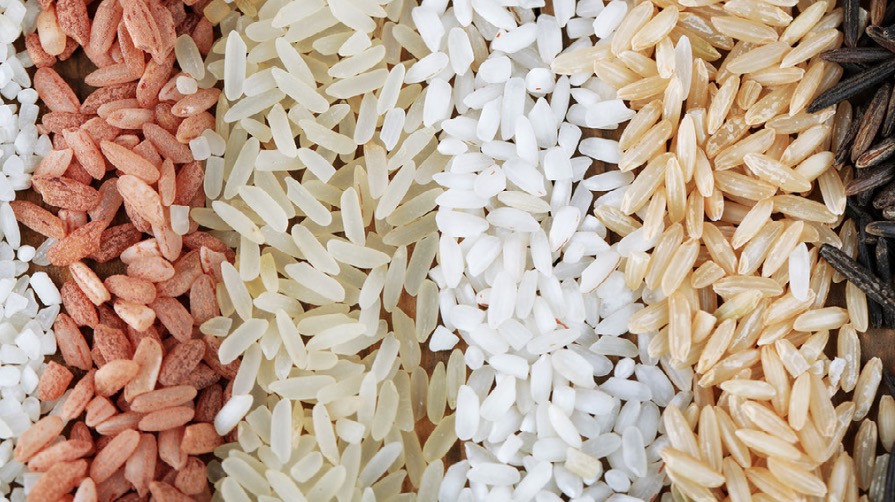
When it comes to bulking diets, rice is a staple ingredient that can help you achieve your muscle-building goals. In this section, we’ll explore different types of rice suitable for bulking and their unique properties.
White Rice
White rice is a popular choice in bulking diets due to its high calorie and carb content. With a neutral taste, it can be easily combined with various foods to create delicious, calorie-dense meals. The caloric content of white rice will help you reach your daily energy intake more efficiently.
Some benefits of incorporating white rice in your bulking diet:
- High in carbohydrates
- Easy digestion
- Quick energy source
Keep in mind that white rice is a refined grain, meaning it has been stripped of its bran and germ layers, resulting in a lower nutritional value compared to brown rice.
Brown Rice
Brown rice is an excellent option for bulking, as it is a whole grain that retains its bran and germ layers, providing more nutrients and fibre compared to white rice.
Including brown rice in your diet can help with digestion, keeping you fuller for longer due to its high fibre content.
Some notable benefits of brown rice in your bulking diet:
- Rich in fibre
- Higher nutrient content
- Steady energy release
The taste of brown rice tends to be nuttier and chewier than white rice. Although it may take longer to cook, its nutrient profile and benefits make it worth considering in your bulking plan.
Jasmine Rice
Jasmine rice is a fragrant, long-grain white rice variant that is also a popular choice for bulking diets. The fragrance and slightly sweet flavour make it a great addition to a variety of dishes. Similar to regular white rice, jasmine rice is high in calories and carbohydrates, making it a convenient choice for meeting your daily energy intake goals.
Some advantages of jasmine rice in your bulking diet:
- Aromatic and pleasant taste
- High in carbohydrates
- Easy digestion
While jasmine rice shares the same nutritional downsides as regular white rice, its taste and fragrance may help you enjoy your meals more and stay consistent with your diet.
By understanding the properties of white rice, brown rice, and jasmine rice, you can make informed decisions on which type of rice best suits your bulking diet and personal preferences.
Bulking Techniques and Rice
Clean Bulking
Clean bulking, also known as lean bulking, involves increasing your calorie intake by consuming nutrient-dense, high-quality foods. This technique aims to support muscle gain while minimising fat accumulation.
Rice is a staple in a clean bulking diet because it is an excellent source of carbs, which provide energy and facilitate muscle repair during workouts. Apart from that, rice, especially brown rice, has a good amount of fibre, which can improve digestion and nutrient absorption.
Make sure to combine rice with lean protein sources, such as chicken, fish, or beans, and vegetables to create balanced, nutrient-rich meals.
Lean Bulking
Lean bulking is another term for clean bulking and focuses on gaining muscle without adding much extra body fat. You prioritise a smaller calorie surplus, typically around 200 to 300 calories above your maintenance level. The goal is a slower but steadier increase in muscle mass to prevent excess fat gain.
Rice is helpful for lean bulking because it provides easy-to-digest carbohydrates, without causing a rapid spike in blood sugar levels. White rice can be consumed post-workout to promote muscle recovery, while brown rice can be consumed at other times of the day to sustain energy levels. Plan your meals with rice in the right portions, keeping in mind your daily macro and micronutrient requirements.
Dirty Bulking
Unlike clean bulking, dirty bulking emphasises a significant calorie surplus, often consuming high-calorie, low-nutrient foods like fast food, desserts, and processed foods.
While rice can still be a part of a dirty bulking diet, it is likely to be paired with high-fat, high-calorie additions such as heavy sauces, fried foods, or other unhealthy options.
Dirty bulking may lead to quicker initial muscle gains, but it often results in excessive fat gain and long-term health problems.
It’s crucial to evaluate your fitness goals and choose an appropriate bulking technique that aligns with your health and performance values while incorporating rice into your diet.
Is Fried Rice Good for Bulking?
Fried rice can be a good option for bulking if you prepare it with the right ingredients and follow a balanced recipe.
Since rice is high in carbohydrates and relatively low in protein and fat, it serves as a great base for a bulking meal.
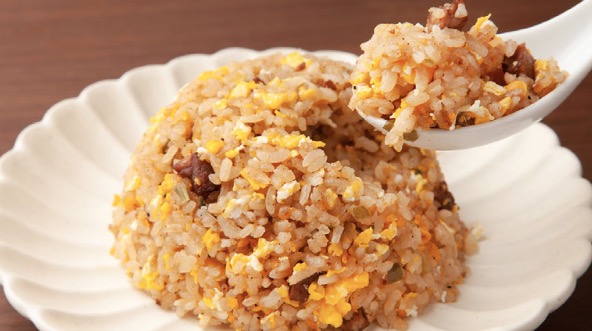
To create a high-protein fried rice recipe, you should include protein-rich ingredients such as chicken, shrimp, or tofu. For example, using brown jasmine rice as a base and combining it with a protein source, mixed vegetables, and seasonings will enhance the nutritional content and flavour.
Brown rice is a healthier option compared to white rice, as it is less processed and retains more nutrients.
Remember, the key to effective bulking is consuming quality nutrients and a balance of macronutrients. It is essential to consider the calories you consume from carbohydrates, protein, and fat. You might want to monitor your portion size and make adjustments according to your specific needs and goals.
In summary, fried rice can contribute to a successful bulking diet if you choose the appropriate ingredients and consume it as part of a well-planned nutritional programme.
Frequently Asked Questions
Best rice varieties for bulking
When it comes to bulking, you might be wondering which rice varieties are ideal.
Jasmine and Basmati rice are both excellent options, as they provide good amounts of carbohydrates and are easy to digest. Moreover, they add a pleasant fragrance and taste to your dishes.
Is rice or pasta better for bulking?
Both rice and pasta are great sources of carbohydrates for bulking. However, rice provides a higher ratio of carbohydrates to protein and fat, which makes it a more efficient energy source during bulking.
Additionally, rice tends to be easier to digest and offers more versatility in terms of pairing with other foods.
Rice consumption for muscle recovery
Consuming rice after workouts can aid muscle recovery, as it helps replenish glycogen stores in your muscles.
Glycogen is essential for muscle growth and repair, so it’s important to consume carbohydrates like rice after exercising to support proper muscle recovery and growth.
Ideal rice intake during bulking
The ideal rice intake varies depending on your personal goals, weight, activity level, and overall diet. As a guideline, aim for around 2 to 4 cups of cooked rice daily as part of a balanced diet.
It’s important to listen to your body and adjust intake as needed to support your bulking efforts.
White vs. brown rice for bulking
White rice and brown rice both have their merits when bulking. White rice is easier to digest and less filling, allowing you to consume more of it, while brown rice is a complex carbohydrate providing more fibre and nutrients.
Make your choice based on personal preference, and remember that a successful bulking diet includes a variety of foods and nutrients.
Can rice help in building muscle?
Yes, rice can contribute to building muscle, as it provides carbohydrates which are crucial for energy and muscle recovery.
While rice alone won’t build muscle, it’s an essential component that complements a balanced diet, sufficient protein intake, and regular strength training.
Author
- Danny Loeb is a qualified Personal Trainer, Fitness Model and Writer. He enjoys blogging about health and fitness, messing around with Photoshop, and sharing his experiences with everyone.
Latest entries
 NutritionFebruary 6, 2024What Are Fillers in Supplements? – Unveiling Inactive Ingredients
NutritionFebruary 6, 2024What Are Fillers in Supplements? – Unveiling Inactive Ingredients FitnessAugust 23, 2023Best Post-Workout Foods: Great Ideas for Recovery and Results
FitnessAugust 23, 2023Best Post-Workout Foods: Great Ideas for Recovery and Results BulkingJuly 26, 2023Is Rice Good for Bulking? Unveiling the Truth
BulkingJuly 26, 2023Is Rice Good for Bulking? Unveiling the Truth CultureJuly 15, 2023Why Do People Hate Planet Fitness? Read This Before You Join!
CultureJuly 15, 2023Why Do People Hate Planet Fitness? Read This Before You Join!
Affiliates:
This post may contain affiliate links that at no additional cost to you, the site may earn a small commission. We only recommend products we would use ourselves and all opinions expressed on this site are our own.
General Advice:
The information provided in this article is for general informational purposes only. It is not intended as a substitute for professional advice. Always consult with a qualified healthcare professional before starting any new diet, exercise program, or making changes to your health routine.
Accuracy Advice:
While we strive to provide up-to-date and accurate information, the content in this article may not reflect the most current research or medical guidelines. We encourage readers to do further research and consult with professionals for more personalized advice.
Our Recommendations:
The products and services mentioned in any of our articles are recommended based on our independent research and personal experience. We are not sponsored by any company. We aim to suggest products and services we believe are of high quality and could be beneficial to our readers.




